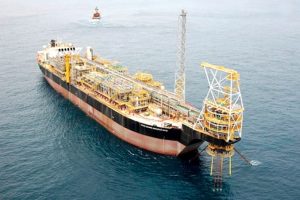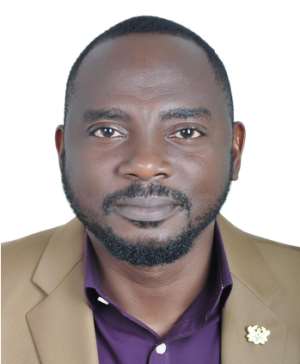
Accra, Ghana, August 1, 2020//-An oil spill is when any form of oil is released into the environment. It is deemed to occur when crude oil is illegally deposited into the ocean waters, thereby avoiding proper decomposition cost.
Also, natural disasters such as hurricanes and tornadoes can damage oil containing rigs. Furthermore, toxic oil can be leaked into the environment when operations go wrong due to drilling using oil rigs.
Oil spillage in Ghana can have an adverse effect on the marine environment with dire consequences for the survival of marine flora and fauna.
Oil spillage can severely cause distress to ecosystems and may affect the livelihood of citizens living near contaminated coastline, thereby impairing their quality of life.
With the hope of bringing to attention the need for quality of life, it is essential to understand the oil spill to its core. Understanding oil spill to its core necessitates a comprehensive understanding that the nature and duration of the consequence of an oil spill depend on numerous factors.
According to literature as well as findings from the Center for International Maritime Affairs (CIMAG), such numerous factors include gaining in-depth knowledge in marine environment features; physical characteristics and ambient conditions in relation to the location of the spill; prevalent weather conditions; the quantity and type of oil spill coupled with the biological composition of the affected environment.
CIMAG asserts that the key factor in understanding the nature and duration of the consequence of an oil spill hinges on the speed of dissipation of pollutants due to natural processes. The speed of dissipation helps determine whether or not environmental resources may have been exposed to toxic components.
With the looming understanding of how oil spill does endanger the marine environment, many countries have decided to reduce to an appreciable level the impact of greenhouse gases (GHG) on the environment.
Minimizing GHG emission with which oil spill forms an integral component requires setting mitigation targets. However, in an oil-reliant country where proceeds from the sale of oil and gas serve as an add-in effect on economic development, setting mitigation targets are becoming increasingly complex.
Due to the pivotal role of oil production in daily routine activities, the questions that come to mind are; Is there really a need for policies required to mitigate oil spillage?
Does the production of energy from conventional and exhaustible resources boost Ghana’s economic growth? Should there be frequent monitoring, evaluation, and adjustment of energy policies?
Is Ghana’s Internationally National Determined Contributions (INDCs) sufficient in achieving the energy-induced share of the 1.5 °C global warming target?
Arguably, it is always dicey to conclude whether or not the production of oil is a mixed blessing. On one hand, its proceeds are used to fund the economy.
On the other hand, it endangers human and ecological safety. However, although Ghana is not a top emitter of GHG emissions, Ghana’s GHG data from the World Development Indicators (WDI) is sharply rising.
Taking a clue from the top five heavily polluting countries (China, the United States, India, Russia Federation, and Japan), these countries have a roadmap of going 100% renewables by the year 2050.
One may ask: Should Ghana emulate the target of going 100% renewable by 2050? If Ghana is to forego energy produced from conventional and exhaustible resources, what is the future of Ghana’s oil industry?
These questions can only be answered if there are massive investments in energy produced from inexhaustible resources (sun, wind, etc.). As investments in such inexhaustible resources in Ghana seems blurry, it is fair to argue that the production of oil cannot be relinquished in the Ghanaian case.
Yet, it is worth noting that oil spills are of great concern due to the enormous economic loss and the long-term, significant harm to marine ecosystems, local economy, and coastal society and community.
Against this backdrop, Ghana needs to be wary of the seemingly forgotten nexus between the oil spill and the marine environment. Herein, we ask: Are the companies engaged in the production of oil under an obligation to ensure the safety of the marine environment?
Currently, is there a fine similar to the one imposed on the Mediterranean Shipping Company for polluting the Tema Port environment with heavy fuel oil discharged from MSC Alexa on May 10, 2016?
In conclusion, it is a truism that “where there is oil there is a spill”. Therefore, CIMAG calls for a coastal water management tool for oil spill simulation to predict the movement of oil in case of a spill.
The oil spill simulation tool requires investments in technologies such as Geographic Information System Mapping, Remote Sensing, and Relief Wells. Finally, mass education is needed for people living closer to the coastal areas where oil is drilled to understand the effect of oil spill on their health.
 |
Albert Derrick Fiatui is the Executive Director at the Centre for International Maritime Affairs (CIMAG). He holds a bachelor degree in Integrated Development Studies from the University of Development Studies. He holds an LLB (Law) from the Mountcrest University College and a postgraduate certificate in Health Safety & Environment.
He holds a certificate of proficiency in customs procedures & port operations. Currently, Albert is a Director in charge of Business Development at the Logical Maritime Services Limited, a privately held global logistics company. With extensive research, policy and advocacy backgrounds’, Albert serves on numerous boards within the maritime industry. E-mail: albert@cimaghana.org. |
 |
Bismark Ameyaw (Ph.D.) is the director of research and advocacy at the Centre for International Maritime Affairs (CIMAG). He is a director of international relations and research development at the African Center for Strategic Business and Entrepreneurship Development (ACSBED).
He specializes in modelling and forecasting the dynamic links in energy, economics, and the environment. He also takes a keen interest in the Ghana maritime industry and entrepreneurship development. He writes, teaches, and consults on energy and maritime-related issues. He serves as an editorial board member and a reviewer for several Zone A academic journals. E-mail: bismark@cimaghana.org; bameyaw23@gmail.com. |


